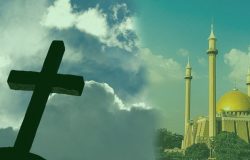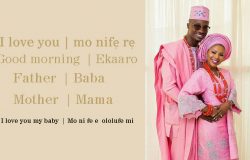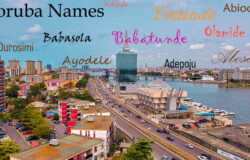The history of Yoruba people serves as the foundation upon which every fundamental aspect of the Yoruba culture, custom, and lifestyle is built.
The present and future of any society are based on fundamental knowledge of the past.
As buildings can’t stand without great foundations, so will society crumble without histories.
Humans and all living beings have their past. This past helps to shape the present and subsequently the future.
Just like a very popular adage in the Yoruba land which says” if you don’t know your past you can’t know where you are heading too”.
We will start by trying to grapple the nitty-gritty of the Yoruba Ethnic group.
What is the Meaning Of Yoruba

Firstly, the history of Yoruba people can’t be comprehensively narrated without explaining the meaning of the word “Yoruba.”
According to renowned professor Ade Ajayi. The Yoruba word was coined in the 18th century, from “Yariba” a Fulani-Hausa word for the people of the south-western part of Nigeria.
The name yariba came as a result of trade between the Hausa and Yoruba communities.
The Hausa believed the people shortchanged them and decided to name them “Yariba” which means “cunning people” in their language.
The colonial masters finally coined the word “Yoruba”, from Yariba and the people, in their characteristic manner of towing the part of peace, accepted the name.
The Igbos people were also called Yamiri, a name they rejected.
History Of the Yoruba Ethnic Group
There are two sides to the documented history of the Yoruba people.
Some of the scholars believe the Yorubas are descendants of Odudwa – one of the Yoruba gods, others are of the opinion that they migrated from mecca.
The Yoruba Langauge has so many words traceable back to the Arabs.
Lamurudu a Yoruba word that translates “we have agreed to part ways” is an Arabic word.
The Yoruba well noted for their worship of idols can be said that they either came from ur of chandez in old Mesopotamia now modern-day Saudi Arabia.
Secondly, Yoruba could be from the Arabs who fled Makkah after it was conquered by Prophet Mohammad.
While many surrendered and embraced Islam the forefathers of the Yoruba decided to leave the city.
Other words in Yoruba drawn from Arabic dictionaries include “Adehun” (promise), “Amana” (trust), sharia and so many more.
This story though is still subject to analysis.
History Of Oduduwa – Yoruba Founding Father
Oduduwa sometimes called odudua or oodua is regarded as the father, leader, and hero of the Yoruba ethnic group.
The Yoruba divine king who later was referred to as ooni(king) of ile-ife, the holy city of the Yorubas.
He fought a war lasting many years and was able to defeat the force of the 13 indigenous communities led by legendary warlord obatala and unified them all into a unit.
Following his demise, he was counted as premodial – an infinite being (a Yoruba god).
Yoruba Pre-colonial Administration

The Yoruba people were well known for their Kings and chief, and a decentralized administration.
The king as chosen by Kingmakers was the main ruler according to the history of the Yoruba people.
The many chiefs offer assistance to him, forming the king’s administrative government.
Lower administration centers such as towns, villages, and hamlets were led by delegated baales and ajelewho, Yoruba local chiefs.
These chiefs received help from other local big wigs.
The baales and ajele were expected to provide annual payments called (isakole) to their kings. There was hierarchy but each chief could nullify the others ruling in a check and balance power equation.
Yoruba Historical Culture
The Yoruba historical culture includes her total reliance on artwork, staff, fashion, and beadwork. These are things which have helped to shapen the culture of the Yoruba people.
The historical Yoruba also had the Yoruba traditional artistry which the masquerade is an important feature. They are generally referred to as Egungun, singularly as Egun.
They are connected to ancestry belief which says these masquerades are ancestors from the world beyond and only come to visit at specific times and seasons in the year.
They are widely celebrated amidst pop, funfair, and pageantry.
Music was also a very important aspect of the historical culture, well known for its talking drums and musical stories.
In conclusion, the Yoruba history is a very thought-provoking one that must not be relegated to the fore. This history reflects and makes us know the steps to be taken in the navigation of the ship of the nation, Nigeria.
I would love to read your comments about this article, Please use the form below.





What do you think? Leave a Reply.